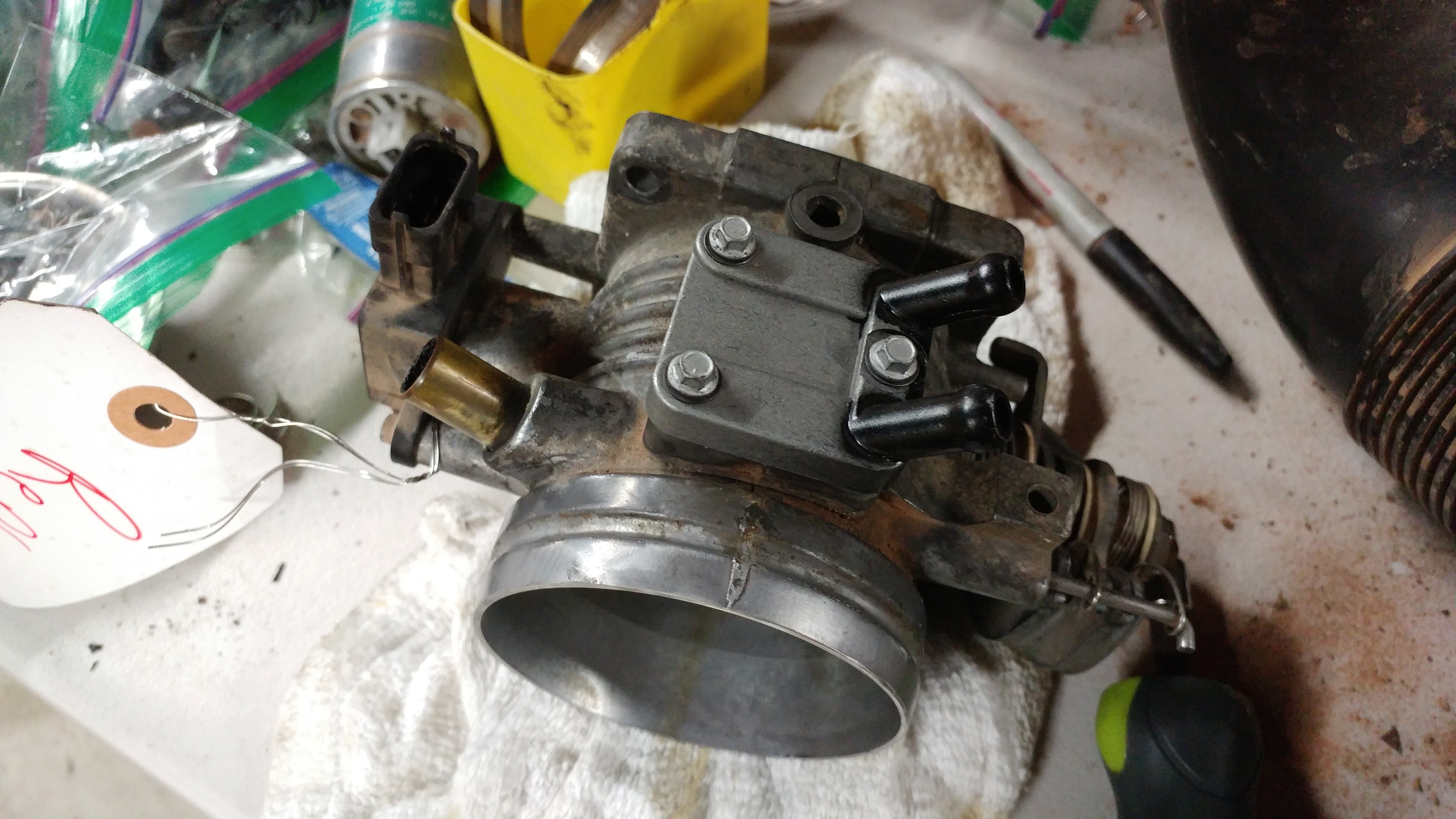 "Akio Ohtori - RIP Oppo" (akioohtori)
"Akio Ohtori - RIP Oppo" (akioohtori)
03/05/2018 at 23:44 • Filed to: Disco Inferno
 1
1
 7
7
 "Akio Ohtori - RIP Oppo" (akioohtori)
"Akio Ohtori - RIP Oppo" (akioohtori)
03/05/2018 at 23:44 • Filed to: Disco Inferno |  1 1
|  7 7 |

... has to be the one of the most frustrating parts of working on a car. Spent at least an hour looking for this bastard. (Throttle body heater.)
Also I did a stupid and got water in my injectors.
Good day all around...
 HammerheadFistpunch
> Akio Ohtori - RIP Oppo
HammerheadFistpunch
> Akio Ohtori - RIP Oppo
03/06/2018 at 00:03 |
|
the throttle body is liquid cooled? why?
 Akio Ohtori - RIP Oppo
> HammerheadFistpunch
Akio Ohtori - RIP Oppo
> HammerheadFistpunch
03/06/2018 at 00:26 |
|
Liquid heated! Why? Uhhh... Something something thermodynamics something something complete.
Honestly seems to just be another place for it to leak coolant.
In reality it’s because under some conditions the throttle plate can frost up do to not very complicated thermodynamics that I don’t fully understand. Something about compression and expansion.
 HammerheadFistpunch
> Akio Ohtori - RIP Oppo
HammerheadFistpunch
> Akio Ohtori - RIP Oppo
03/06/2018 at 00:28 |
|
S3ems like the solution might be better engineering, since it doesnt seem to be a problem for other cars. Those kookie brits.
 Junkrat aka Rick Sanchez: Fury Road Edition
> HammerheadFistpunch
Junkrat aka Rick Sanchez: Fury Road Edition
> HammerheadFistpunch
03/06/2018 at 00:30 |
|
Could it be heated by the coolant for emission reasons?
 Long-Voyager
> HammerheadFistpunch
Long-Voyager
> HammerheadFistpunch
03/06/2018 at 06:57 |
|
Liquid heated.
Chrysler did this on the 2.2/2.5L. It was done to cure icing issues in colder climates.
 Akio Ohtori - RIP Oppo
> HammerheadFistpunch
Akio Ohtori - RIP Oppo
> HammerheadFistpunch
03/06/2018 at 08:36 |
|
Right? My air-cooled VW had something similar, except using exhaust to warm the throttle plate, and the Alfa has a similar setup as the Disco, though I think it only runs when the heater is on. Not sure why some cars have it and others don’t.
 Akio Ohtori - RIP Oppo
> HammerheadFistpunch
Akio Ohtori - RIP Oppo
> HammerheadFistpunch
03/06/2018 at 17:52 |
|
Ahh ok. Apparently it is indeed due to pressure drop and only really relevant in cold temperatures with high humidity at partial throttle, mostly on carburetors.
It is formed at or near a partly closed throttle valve (sometimes called the “butterfly valve”). The water vapour in the induction air condenses and freezes due to the venturi effect cooling the air as it passes the throttle valve. Since the temperature drop is usually around 3°C, the optimum temperature for forming throttle ice is between 0°C to +3°C although a combination of fuel and throttle ice could occur at higher ambient temperatures.